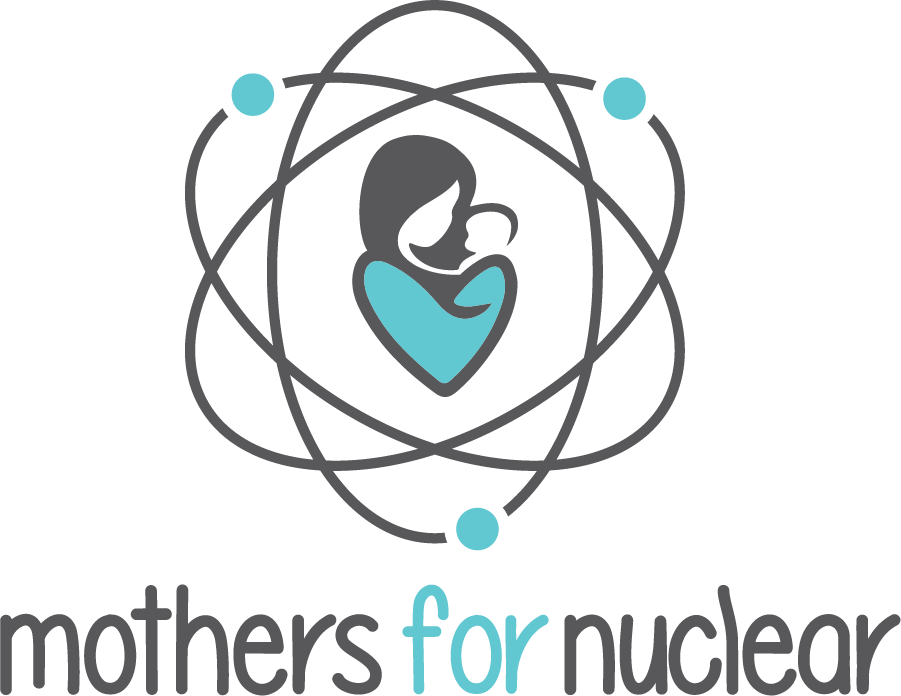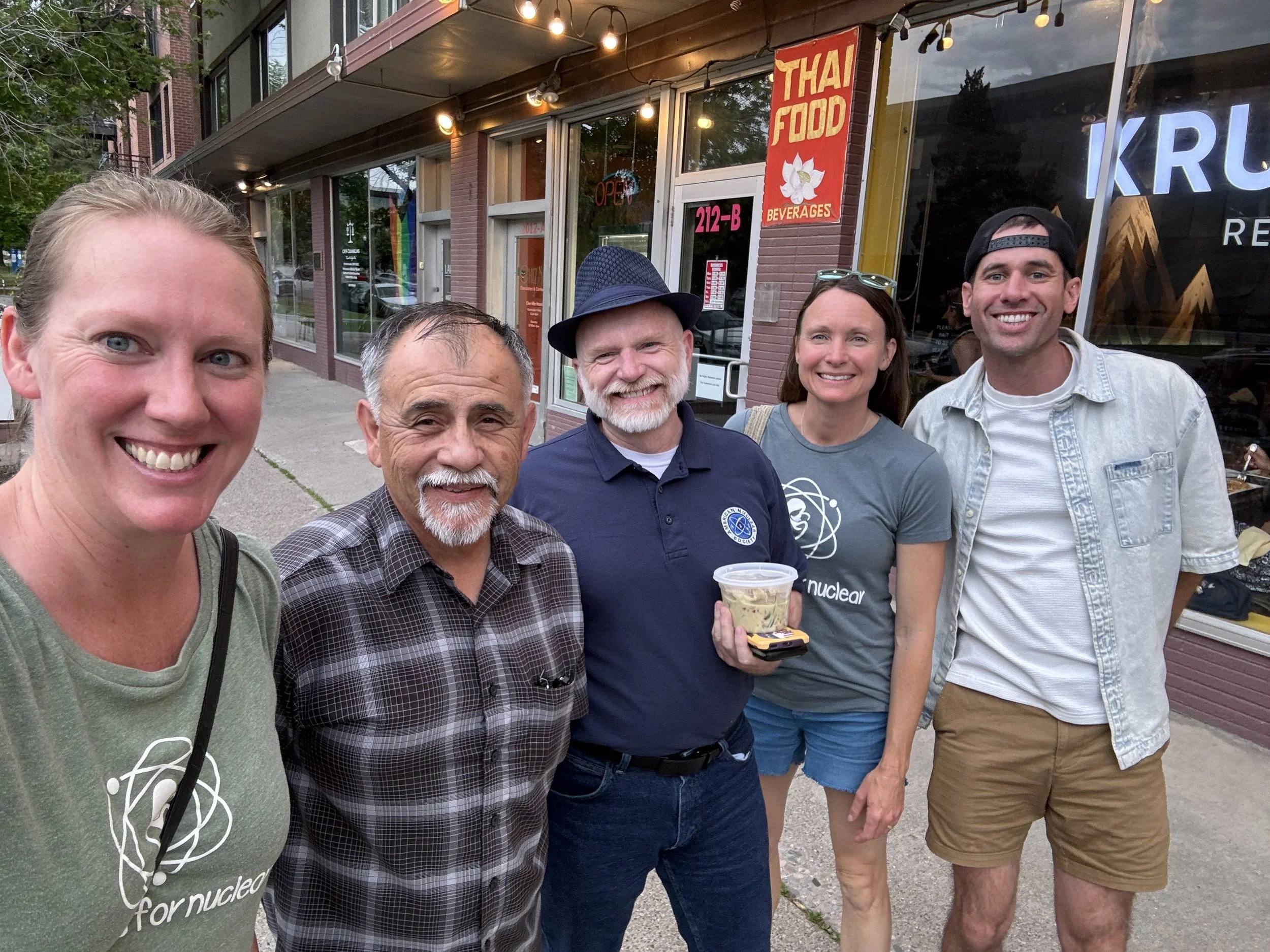Salt Lake City Collaboration-Based Siting Workshop
On June 8th, our group traveled to Salt Lake City, Utah, to host our second Collaboration-Based Siting Workshop. On the plane ride over, we overheard fellow passengers discussing languages like Tagalog and Japanese and how many different ways there are to say “Nice to meet you.” Dou zoyoroshiku is what Heather had learned on Duolingo before our recent trip to Japan so that is what she said to our fellow passengers. When we looked up the translation later, however, we learned she might have actually been saying “Please be nice to me.” Language barriers are hard. But whether or not we make fools of ourselves, it’s important to make an effort.
The cohort on the plane was impressed, though, and we struck up a conversation, which turned to our work in nuclear energy. They were curious about many aspects of that work and excited to learn about the reactor in the Philippines, Bataan, which was fully built but not yet operational since they were returning from the Philippines after nine months of missionary work. We gave them every variety of our stickers, including our logo, Split Don’t Emit, and other new designs.
As we arrived in Salt Lake and admired the juxtaposition of snow-capped mountains and semi-arid desert, we wondered what it would take for Utah to shift from relying mainly on coal power to using nuclear energy. The landscape is beautiful—Utah boasts some of the most amazing national and state parks in the country, including Capitol Reef, Escalante, and Zion, which is like a desert version of California’s Yosemite.
Our team had met virtually every Friday since August 2023, discussing strategy, brainstorming outreach methods, and playing devil’s advocate to force ourselves to imagine anything that might go badly and how we would deal with it together. The Thursday before our trip, we did a dry run of our programming in order to work out details, adjust messaging, and determine roles. We considered our first workshop in Raleigh in January to be a dry run—that audience had consisted largely of nuclear engineering students and had felt relatively low pressure in comparison with Salt Lake City, where we had done lots of high-touch outreach to various community members, including government officials, nonprofit organizations, media representatives, academics, and the general public.
After arriving in Salt Lake, our team gathered in person for even more preparation. One of our greatest strengths—our wide range of perspectives and styles—is also a challenge: it can be difficult to meld them all into a cohesive presentation. But it’s worth the effort to get it right. We listen to nuclear engineering professors and students and to the Tribal Consent-Based Coalition, which is building relationships among multiple tribes and many voices in order to receive their input on this process. We walk a fine line between the technical precision of our work at a nuclear power plant and our focus on empathetic communication as a nonprofit of mothers and women. Our mission in supporting the collaboration-based siting process outlined by the Department of Energy is of such importance (with tendrils connecting the protection and expansion of nuclear energy worldwide) that we felt a mix of emotions related to our work in Salt Lake—honor to have been selected to help, immense pressure to perform, skepticism that anyone could come up with a perfect solution, worry that we might damage public perception, and hope for a future in which a diverse range of perspectives would ultimately lead to the availability of energy for every human and the protection of our planet.
As we converged on the Marmalade Branch of the Salt Lake City Municipal Library and began to greet our participants, all these feelings melded into focus. We needed to be welcoming, available, interesting, and curious, not just to share our own perspectives and process, but to hear from people with different and sometimes even internally conflicting views on nuclear energy and fuel storage.
We are not event planners. As with our nonprofit, Mothers for Nuclear, our CBS team also leans toward doing it all ourselves. This leads to various challenges, as our team members step outside their personal comfort zones and take the lead in areas where they may have no prior experience or skill set. At MfN, we have been reluctantly transforming ourselves from nuclear power plant operators and engineers into all-of-the-above amalgamations of people with skills in graphic design, outreach, media relations, communications, website development, financial management … We see our CBS team similarly learning and growing, with our grad students doing event support and IT verification, our speakers tailoring their messaging to individual listeners while bearing in mind our overarching theme, and our support staff running meetings and arranging media connections while carefully and considerately assisting all of our diverse group members.
Besides some minor logistical challenges (dead batteries in microphones and breakout sessions outside on the hot sunny terrace) the event went well. Although we had several friends and family members in the audience, we quickly noticed several people who might be disruptive to the overall group. Heather told one pretty abrasive skeptic, “I would really love to spend about 5 hours with you!” Fortunately, we had time during the second half of the workshop dedicated to smaller group breakout sessions so she could do a little of that personal attention.
Kristin discussing the MfN practice of “humanizing” nuclear technology
One of our group breakout sessions on the patio - it was warm!
For many people who are not really supportive of nuclear but who do care about climate change and therefore want to support a solution, a common thought process seems to be: I am a nuclear supporter, but x, y, and z (and maybe more) make it a really bad idea, and we can’t really do nuclear until we fix those things. We had one such person in our breakout session. As we started our small group discussion, our minds were headed toward anxiety over how we were going to manage this person and still have a productive dialogue with everyone else. But our instincts took over, and we grew more curious about their concerns. These interactions are not easy—they are highly individualized, time-intensive, and emotional for everyone involved. We must keep trying to get them right.
By the end of the hour, the person we had been worried about told us that he would love to keep in touch and that he was going to reexamine many of his prior assumptions (a phrase we had used early on in our discussion).
A deep tenet of our philosophy on communicating about nuclear is to listen and ask questions rather than explain away someone’s concerns or feelings. So why were we still surprised that it worked? We were happily baffled to see this turnaround.
Another participant was quiet until called upon. It turned out that he was an English language learner, and we had limited resources for translation into and from his native tongue. Language barriers are vital to overcome if we truly intend to make the conversation about nuclear and collaboration-based siting accessible to everyone. As we struggled through translation and checked our understanding, we learned an important lesson about accessibility that we will incorporate into planning for future workshops.
And as we write these blog posts in the airport on our way home, we are struggling to find power for our computers—working around broken, chair-fed electric outlets, crawling on the floor in twisted ergonomics under those chairs past apple cores, half-eaten cough drops, and plastic fingernails, and eventually sitting down in the brilliant San Francisco sunlight, which is quite hot, not the foggy, cool break we were expecting after the 90-degree heat of Salt Lake City. And we’re reminded of the importance of power availability in our modern society.
As we struggle to find the words for this complex situation and for our feelings about nuclear energy, we feel our own radiant energy, which gives each of us the strength and boldness to navigate this difficult balance: leaving our children at home, asking our partners for support, and juggling our time and mental energies to support this mission. Moms are strong—and required to be strong—but we are also vulnerable. We find strength in each other.
Our team
Kristin and Heather getting ready for the presentations
You can also read about the overall collaboration-based siting program or our first workshop in Raleigh.






